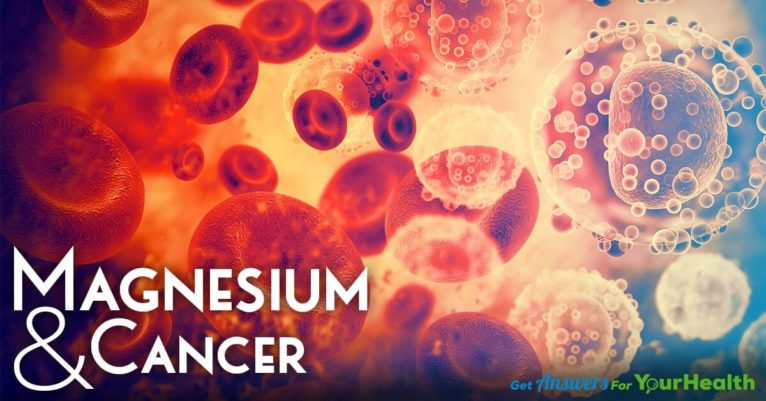1) Grab a FREE copy (Value $14.95) of one of my books Thyroid Symptom Overload
Just pay shipping $7.95 for any US orders. Or, if you want to pay full price plus shipping, order from Amazon :)
2) Take our Thyroid Quiz today and find out what "Thyroid Type" you have
This quiz will help you quickly discover where your symptoms are stemming from.
3) Join Our Thyroid Advocate Membership Site - Natural Thyroid Academy
FREE for a limited time. No credit card required.
4) Work with me and my team privately
Schedule your FREE 15 minute phone consultation and we can find out the best way to help you specifically.
We often overlook the magnesium requirement in the body because a majority of us rely on macronutrients (carbohydrates, proteins, and fats) as well as calcium and sodium among the salts. According to various researches, at least 40% of Americans are magnesium deficient and the number could be as high as 80%
The importance of magnesium in nutrition was not well known before 1930s. It was used in household items, photography, and various commercial purposes. Magnesium is necessary for 300+ essential functions in the human body and its performance directly affects various other systems in the body. For instance, magnesium is necessary for the reconstruction of cell membranes. A magnesium-deficient human body with ruptured cell membranes is susceptible to various diseases.
The daily requirement of magnesium increases with age. The following is the recommended daily requirement of magnesium by age for a healthy person. The requirement may change depending on the body’s condition and affiliated risk factors.
| Age | Daily Magnesium Requirement |
| 0–6 months | 30mg/day |
| 6–12 months | 75mg/day |
| 1–3 years | 80 mg/day |
| 4–8 years | 130mg/day |
| 9–13 years | 240mg/day |
| 14–18 years (male) | 410mg/day |
| 14–18 years (female) | 360mg/day |
| Adult (male) | 400–420mg/day |
| Adult (female) | 350–400mg/day |
| Breastfeeding women | 310–360mg/day |
| Pregnant women | 350–400mg/day |
Fulfilling the daily magnesium requirement through natural sources or supplements is necessary to stay healthy and active. The most important functions of magnesium are listed here.
Sodium and Potassium Regulation
Magnesium is necessary to regulate the electrolysis process within and outside the cells. It is also important to regulate the supply of potassium and sodium in the body. This research by Bara M et al. explains the regulation of sodium and potassium pathways by magnesium in cell membranes.
Vitamin D
Magnesium regulates the usage of vitamin D in the body in all forms. According to this research by Edward LR, magnesium supplementation should be included in Vitamin D therapy among vitamin D deficient patients. We suggest using emulsified Vitamin D for better absorption.
Magnesium and Cancer
The relationship between magnesium and cancer is complex and has been under medical research for a long time.
An excerpt from the study conducted by Maeir JA et al. explains:
“In magnesium-deficient mice, low magnesium both limits and fosters tumorigenesis, since inhibition of tumor growth at its primary site is observed in the face of increased metastatic colonization. Epidemiological studies identify magnesium deficiency as a risk factor for some types of human cancers. In addition, impaired magnesium homeostasis is reported in cancer patients, and frequently complicates therapy with some anti-cancer drugs.”
A majority of the geography-based cancer studies have revealed that the regions with low magnesium concentration in the water or soil tend to have more cancer cases. On the other hand, regions with abnormally high magnesium concentration in water and soil may also have high cancer ratio.
The Journal of Nutrition published a research study in 2010 based on the link between magnesium and cancer. The study included assessment of 87,117 Japanese men and women, ageing 45-74, who consumed at least 327mg Magnesium per day. According to the results, the chances of colon cancer in these men and women reduced by 52%. The Iowa Women’s Health Study published a research in 2005. It was based on the 17-year study and assessment of postmenopausal women. One group of the women took 351mg Magnesium per day and the other group took less than 271mg Magnesium per day. The results were surprising. Women, who took 351mg Magnesium a day reduced the risk of colon cancer by 23%.
Magnesium and Cancer Treatment
As aforementioned, both conditions i.e. the deficiency or excess of magnesium in the blood can cause cancer or aid the growth of cancerous tumors. However, magnesium has been declared as an essential ingredient to help cancer patients. Your medical doctor will recommend magnesium blood work along with other tests. Depending on the deficiency or excess of magnesium in the blood, your medical doctor will set a plan of treatment.
Magnesium introduction in the blood includes different kinds of administration. It is not necessary that a patient’s blood should be flooded with magnesium in least possible time. The treatment is always gradual and in line with other medications. Oral administration of magnesium includes multivitamins and magnesium rich salts in the diet. Magnesium incorporation may include nebulization into the lungs or transdermal application to the skin. Magnesium rich salts, such as Epsom salt, may be added into the bathing water for direct absorption into the skin. Magnesium chloride or magnesium bicarbonate are the ideal most forms to be taken for magnesium fulfillment.
Alongside other kinds of magnesium administration, food plays an important part. If the cancer patient is magnesium deficient, the treatment plan must include careful distribution of magnesium intake based on diet, supplementation, nebulization, transdermal application, etc. Similarly, if the cancer patient has hypermagnesemia, magnesium should be carefully eradicated from diet, supplementation, medication, etc.
Factors that Cause Magnesium Deficiency
Just to reiterate, the human body is a complex unit of systems, and each system is affected by the performance or activity of the other systems. Many times, we don’t even know that our routine activities are playing havoc in our body.
Refined Sugar
The relationship between refined sugar and magnesium could come as a surprise to many. However, the effect of refined sugar is not limited to magnesium only. People who consume carbonated drinks, pastries, cakes, desserts, and other foods rich in refined sugar tend to have low magnesium levels. The molecules of refined sugar bind with the magnesium in blood. When the blood is purified in the kidneys, these sugar molecules along with magnesium are released from the body. Since magnesium plays a vital role in the synthesis and storage of vitamin D in the body, its deficiency causes low calcium in the body, and hence weaker bones.
Certain Drugs
Birth control pills, estrogen replacement therapies, diuretics, and asthma and heart medication can increase magnesium loss in the body through kidneys. It is important to discuss the effect of a drug on the magnesium in your body. If you are already deficient in magnesium, make sure to inform your medical doctor about it.
Alcoholic Beverages
Increased intake of alcoholic beverages increases the loss of magnesium through the kidneys, leading to low magnesium, calcium and vitamin D levels in the body.
Increased Calcium Intake
Calcium and magnesium have a unique relationship with each other. Magnesium aids the absorption of calcium in the body, but calcium decreases the magnesium in the body. The ideal calcium to magnesium ratio for a majority of people is 2:1. However, the ratio could differ from person to person, depending on the specific body’s requirement and its associated risk factors.
Final Verdict
Each body’s magnesium requirements differ based on the medical condition. Similarly, the body’s reaction to magnesium, also differ. Magnesium deficiency or excess alone does not cause cancer, but it may assist the occurrence or growth of cancer cells in the body. The link of magnesium with cancer in the body is greatly based on diagnosis from your medical doctor.
References
https://www.ncbi.nlm.nih.gov/pubmed/8274363
https://medlineplus.gov/ency/article/002423.htm
https://www.ncbi.nlm.nih.gov/pubmed/28471760
http://drsircus.com/cancer/magnesium-and-cancer/
https://www.ncbi.nlm.nih.gov/pubmed/21933757
https://thetruthaboutcancer.com/magnesium-deficiency/
https://beatcancer.org/blog-posts/magnesium-deficiency-and-cancer
https://www.canceractive.com/cancer-active-page-link.aspx?n=3354
https://breastcancerconqueror.com/magnesium-deficiency-breast-cancer/








